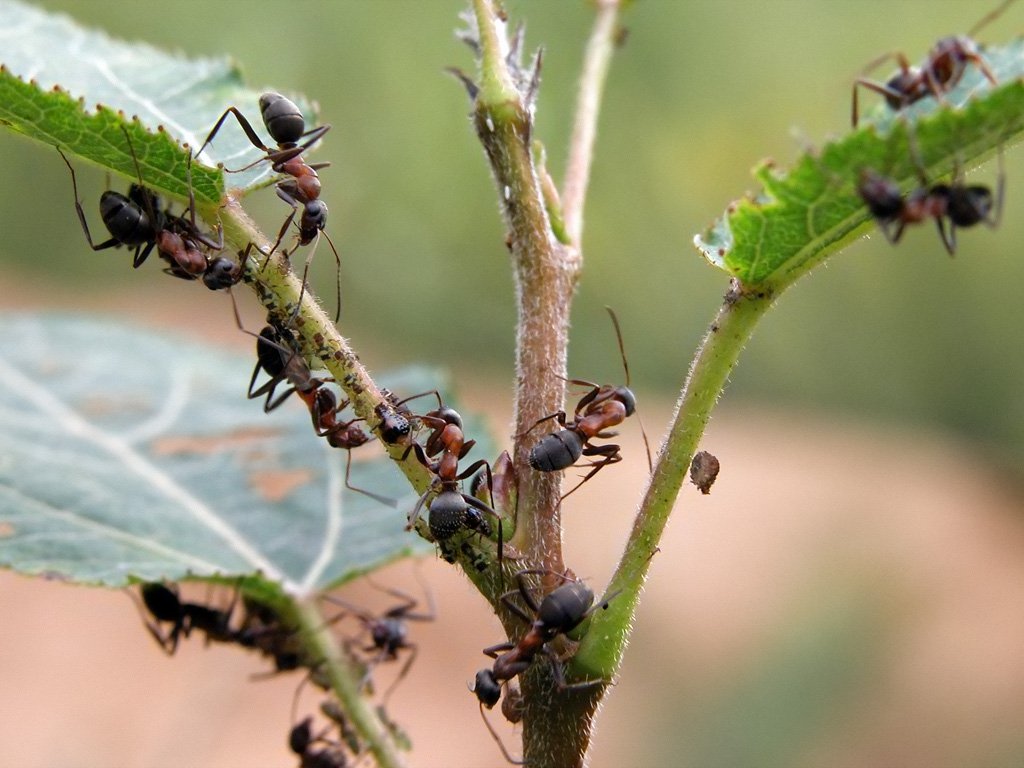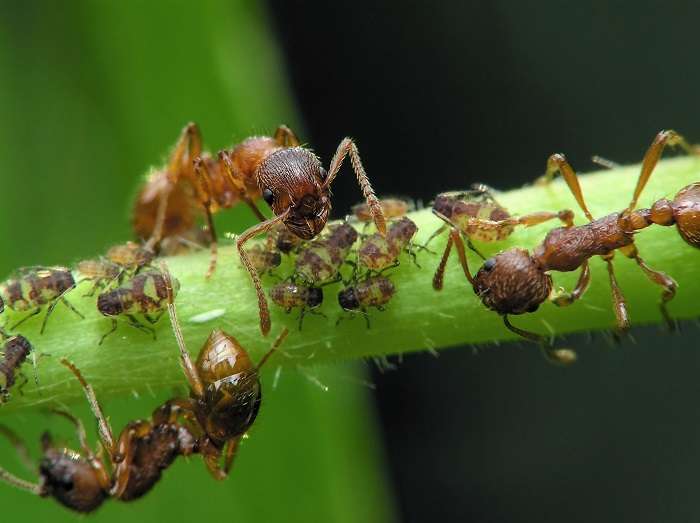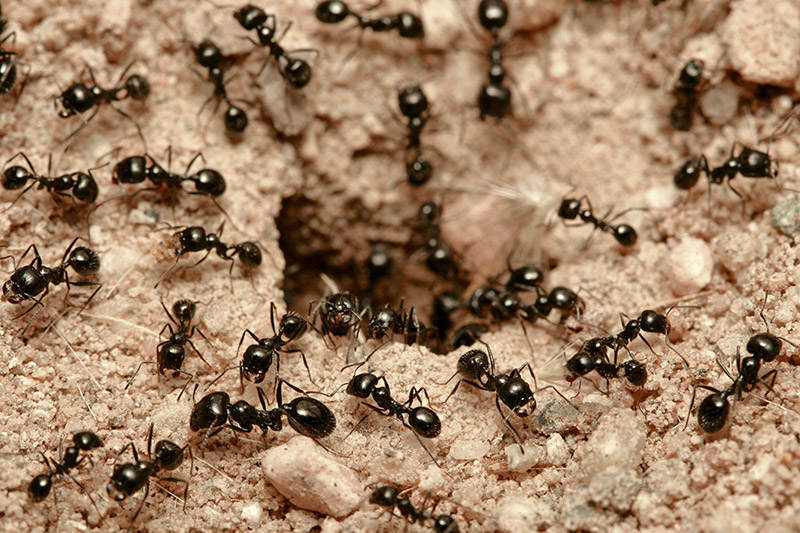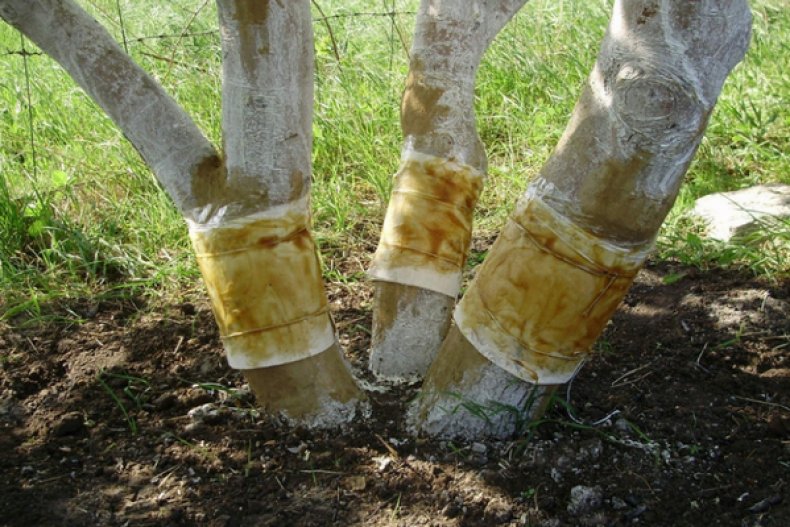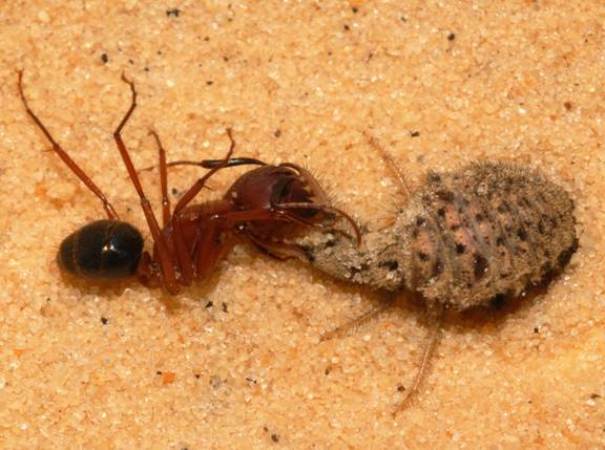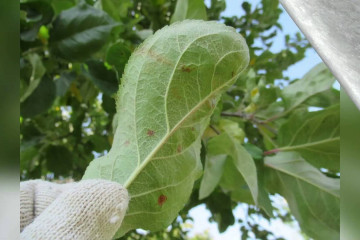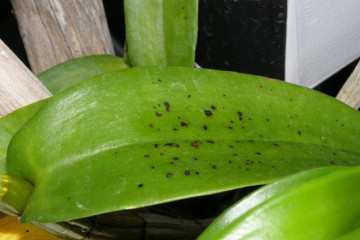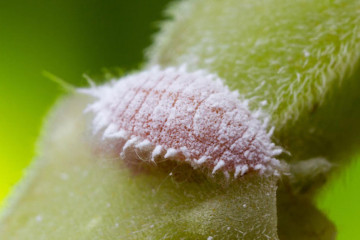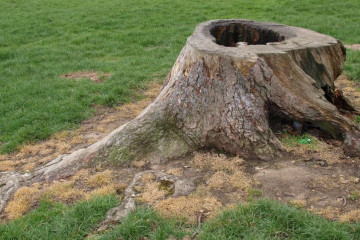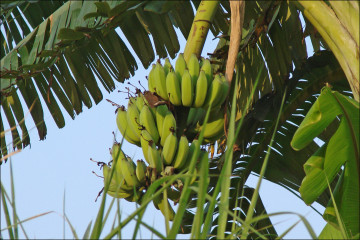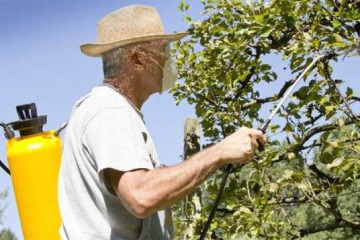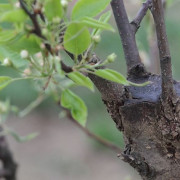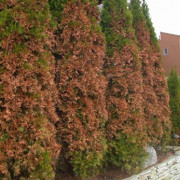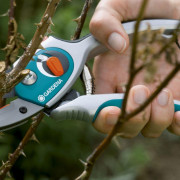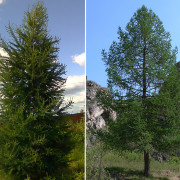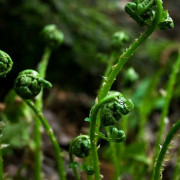How to get rid of ants on fruit trees - folk remedies
Content:
The invasion of ants on fruit trees is a problem familiar to every gardener. The most common method of dealing with them is the use of purchased toxic substances, but this harms the plant itself and the fruits. To understand how to get rid of ants on fruit trees, you need to know the reasons for their appearance, as well as the types of insects and their differences.
What causes ants to appear
There are 2 main reasons for the appearance of insects:
- Budding season - ants eat the fresh buds of young trees, so with the onset of spring and the swelling of the buds, they can activate and begin to destroy young shoots. Protect the tree from the outside so that insects cannot get close to it.
- Aphid. A special liquid is released from the bodies of these pests, which is a favorite delicacy of ants. In this regard, insects have a kind of symbiosis: ants feed on the liquid that aphids release, and in return protect them and promote reproduction.
How to understand that pests have appeared
There are different ways to detect the presence of ants on trees.
The appearance of ants
The size of these insects is about 5-7 mm, they are black, brown or orange. Pests have an oblong body with a pronounced head section. Depending on the type, they can either build anthills from various plant debris on the site, or arrange a dwelling in the ground. In the latter case, it will be a piece of blasted earth with many small holes around. In both cases, it is easy to find the home of the pests.
Spreading ants
Most often, they appear on the site for such reasons as:
- high humidity;
- the presence of aphids;
- access to food, especially sweet foods (therefore, insects choose fruit trees).
They can get to the site from the forest if it is nearby, together with firewood or timber structures (for example, garden furniture, boxes, etc.), or from neighbors.
Life cycle and reproduction
One ant lives on average for about 3 years. Insects reproduce by laying eggs, and the full cycle of transformation from an egg to an adult insect takes only 2 weeks. During the season, one female ant can lay several hundred eggs, so they reproduce at a very fast pace and occupy larger and larger territories. The sooner you take action to combat them, the easier it will be to get rid of the pests.
Ant species
Garden ants are divided into 2 types:
- Redheads. This species settles in the forest, but often they appear in the garden.Red ants build anthills in the garden from twigs, needles and other plant waste. Most often, they appear in areas that are located close to the forest.
- Garden black ants. This species is smaller and lives in anthills dug in the ground, most often near a tree. They can harm the roots and fruits of trees, as well as destroy berries and spread aphids around the area. It is quite easy to recognize insects, they are active during the daytime and are constantly near their home.
Pros and cons of the appearance of ants
Oddly enough, the appearance of these pests on the site has its advantages. Ginger ants help rid the area of caterpillars and other harmful insects that eat the leaves and fruits of the plants. In addition, in the process of life, they cultivate the soil, saturating it with potassium, phosphorus and magnesium, which serves as a natural fertilizer for plants.
But the disadvantages of the presence of ants on the site are much more:
- They harm the fruit trees themselves: they eat up the buds, fruits, they can spoil the berries and undermine the roots of the tree.
- Due to insects, aphids are actively developing, which can completely destroy the crop.
- On their bodies, pests carry weed seeds.
How to protect a tree from ants
There are several basic ways to control pests. For example, if ants appeared on a pear, how could the tree be processed? You need to choose from the following methods:
- Creation of a barrier. The method is simple - it is necessary to create a barrier around the tree that pests cannot overcome, for example, sprinkle a circle with a powder of lime, chalk or soda around the perimeter of the bush. Another option is to make depressions and pour water into them, insects will definitely not be able to overcome such a barrier.
- Aromatic impregnations. Ants cannot stand strong odors, so you can put bags or rags soaked in aromatic oils, unrefined vegetable oil or ammonia around the anthill. This will force the insects to look for a new place of residence.
- Hunting belt. This method has been one of the most reliable in the fight against ants for decades. You need to place it on a tree a few centimeters above the ground in early spring. The insects will climb up the tree trunk, and most of them will stick and die. You can remove the remedy when the pests are completely gone.
- Whitewashing of tree trunks. To protect fruit trees from insects and various bugs, including defeating ants on a pear and an apple tree, you can treat the trunks with a special composition or simply whitewash with lime. At the same time, lime will scare away bark beetles.
- Traps and baits. You can use ready-made insect traps, or you can make them yourself. They come in the form of gels, hunting belts or special plastic devices. The principle of operation of such products is as follows - traps contain a sweet bait, which can be used as honey or jam. The sweetness will attract ants with its scent. After falling into the trap, insects die (either due to glue and paralysis of movements, or due to poison). You can install independent traps made of padding polyester or similar material by wrapping tree trunks with it. Previously, the material must be impregnated with oil or other liquid with a pungent odor.
These methods can be used to protect both mature trees and seedlings. The treatment of the plant should be carried out in the spring, before flowering, or in the fall, after the end of fruiting.
Fighting ants with plants
Some gardeners are wondering how to get rid of ants on fruit trees using folk remedies. If you plant odorous plants near the anthill, they will prevent the ants from finding food.Pests have a negative attitude towards everything that has a pungent smell. Among these plants:
- mint;
- tansy;
- parsley;
- mustard;
- anise;
- laurel;
- coriander.
Other plants with a pungent smell will do.
Who can help fight ants
There are animals that eat ants. Among them there is an ant lion, various birds, even domestic chickens. But some birds can also feed on berries and fruits, so this method of controlling insects is not the most successful, but you can still reduce the pest population.
Preventive actions
The safest way is to regularly inspect the area for the appearance of an anthill or aphid accumulation. The trunks of fruit trees need to be processed every spring, and around the circumference they can be sprinkled with ash or chalk. You also need to promptly remove all sources of insect pests, do not leave fallen fruits and berries on the ground. When the first traces of ants are found on the site, you must immediately take measures to combat them.
The most effective result will be given by a complex struggle - processing trees, destroying existing sources of ants, using odorous baits and traps. An important nuance is the removal of aphids and collective pest control so that they do not return from neighboring areas.
